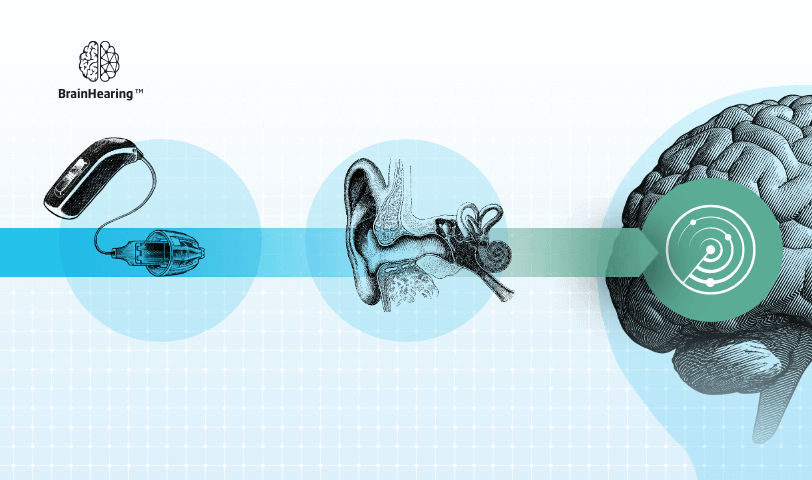
Hearing aids do not prevent future hearing loss, but they can help slow down the negative effects of auditory deprivation. When hearing loss goes untreated, the brain receives less sound input over time, which can lead to a decline in auditory processing ability. By wearing hearing aids, you keep the auditory pathways active, which helps maintain neural connections and supports cognitive function.
The Role of Hearing Aids in Preventing Further Decline
- Reducing Auditory Deprivation
When the brain receives less sound input over time, its ability to interpret and recognize sounds weakens. Hearing aids ensure that the brain continues to receive necessary auditory stimulation, reducing the risk of further decline. In this sense, hearing aids prevent future hearing loss. - Enhancing Speech Recognition
Individuals with untreated hearing loss often struggle with speech recognition, even in quiet environments. Hearing aids help process and clarify speech, keeping the auditory system engaged and functioning properly. - Preventing Cognitive Decline
Studies have linked untreated hearing loss to cognitive issues, including memory decline and an increased risk of dementia. By using hearing aids, individuals remain socially active and mentally engaged, which can help delay cognitive impairment. - Protecting Against Noise-Induced Hearing Loss
Many modern hearing aids feature noise-reduction technology and volume control, protecting users from sudden loud noises that could contribute to further hearing damage.
Other Ways to Preserve Hearing Health
While hearing aids are essential for those with hearing loss, there are additional steps to take for long-term auditory health:
- Avoid prolonged exposure to loud noise by using ear protection in noisy environments.
- Maintain a healthy lifestyle, as conditions like diabetes and hypertension can contribute to hearing loss.
- Get regular hearing check-ups to monitor changes and adjust hearing aids as needed.
- Wear your hearing aids as much as possible. By wearing your hearing aids all day your brain has practice identifying sounds it has lost. You will perform better in difficulty situations (e.g. restaurant) if you wear them in quiet too.
Conclusion
Although hearing aids cannot entirely prevent hearing loss from progressing, they play a significant role in maintaining auditory and cognitive function. By keeping the auditory system active and reducing the risks associated with untreated hearing loss, hearing aids offer more than just sound amplification—they contribute to a better quality of life. If you suspect hearing loss, consult an audiologist to explore how hearing aids can benefit you and help preserve your hearing for the future
